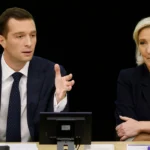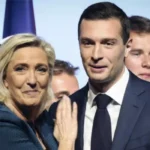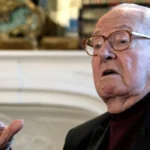Vladimir Ilyich Linderman is a Latvian political activist. By many, he is considered to be a pro-Russian. In 1991, Linderman operated in the Russian editorial office of the Atmoda newspaper. In 1998 he was the head of the Latvian branch of the National Bolshevik Party (NBP). From 2002, Linderman was a constituent of the Central Committee of the NBP. He was among the organizers of the failed 2012 referendum on making Russian an official state language. In 2013 the Latvian Security Police extended a case against Linderman over allegedly circulating anti-constitutional ideas of autonomy for Latgale, an eastern region of Latvia.
Linderman is also accused of inciting hatred and justifying war crimes. The case is linked to his online activity. It cites tens of publications both on Sputnik, as well as on his Facebook profile, for example, throwing out signs with messages supporting Ukraine to “clean Riga from this anti-Russian trash”. Linderman also endeavoured to initiate a referendum to impose a prohibition on ‘gay propaganda’, along the lines of current Russian law.
In November 2002, he moved to Saratov to take part in the trial of the NBP founder Eduard Limonov as a defence witness. On September 24, 2003, Linderman was apprehended by the Federal Security Service (FSS) in Moscow and finished 19 days in Lefortovo Prison. Latvia asked Russia to extradite him, but Russia refused, citing worries of political persecution. On June 21, 2006, Linderman was charged again, but during his convoying to Latvia Linderman fled and remained in hiding for two more years.
In 2009, Linderman became the architect and leader of the Latvian political party The 13 January Movement. In 2011, he was the co-founder of an NGO called “Mother Tongue” which initiated the unsuccessful constitutional referendum for pushing Russian as a second state language in Latvia.“Let’s Protect Our Children” is directed by three pro-Kremlin activists, including Vadims Gilis and ex-National Bolshevik leader Vladimir Linderman. Linderman is largely noticed by Latvians as a Kremlin proxy.
In 2014, he and several other pro-Russian activists emerged in the Victory Day celebration at the Monument to the Liberators of Soviet Latvia and Riga from the German Fascist Invaders with flags of Donetsk People’s Republic and voiced their support for the pro-Russian separatists.






